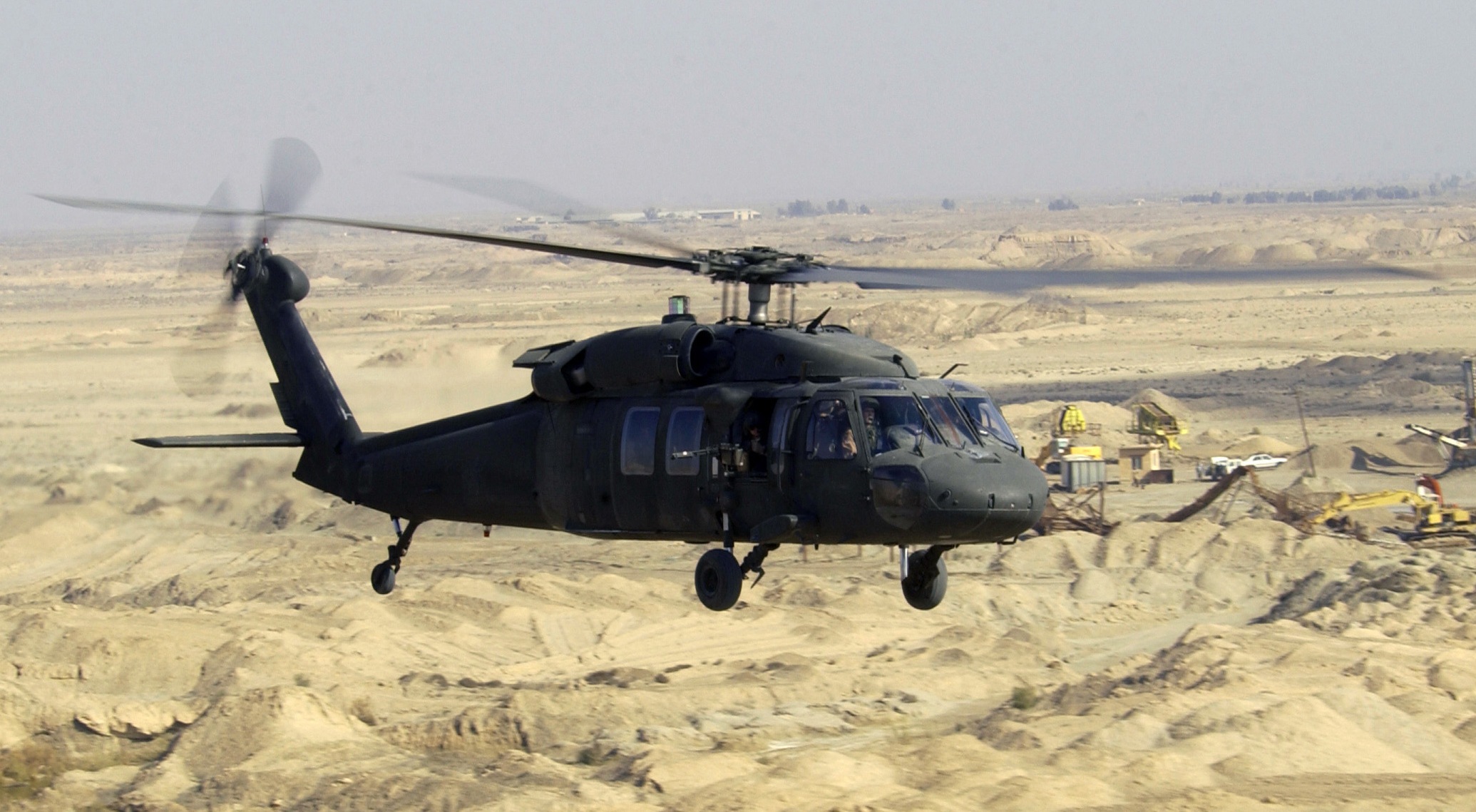Understanding the Performance Capacities of the UH-60 Blackhawk Helicopter
Understanding the Performance Capacities of the UH-60 Blackhawk Helicopter
Blog Article
UH 60 Helicopter Demystified: A Closer Consider Its Benefits and Core Parts
The UH-60 helicopter, often shrouded in a shroud of enigma, stands as an awesome airplane with a myriad of advantages that make it a crucial property in both armed forces and private operations. From its robust engine and propulsion system to its complex avionics and communication equipment, the UH-60 is a wonder of contemporary engineering. Its structural design and innovative materials play a crucial role in its efficiency and sturdiness. As we explore the core elements and functional capacities of this versatile helicopter, a deeper understanding of its significance in numerous industries arises, clarifying its crucial function in aviation.
Benefits of UH-60 Helicopter
The UH-60 helicopter sticks out for its remarkable versatility and dependability in a large range of objectives. One of its crucial advantages is its capability to adjust to various functions, such as army transport, clinical evacuation, search and rescue, and battle assistance. This versatility makes it a useful property to army forces worldwide. One more benefit of the UH-60 is its impressive performance abilities. With a leading rate of over 150 knots and a variety of around 320 maritime miles, the UH-60 can swiftly deliver employees and equipment over cross countries. Furthermore, its innovative avionics and navigation systems enhance situational awareness, allowing pilots to run securely in varied settings, consisting of adverse climate condition and rough terrains. The UH-60's resilient building and construction and powerful engines contribute to its integrity, ensuring that it can effectively execute missions in also the most tough scenarios. Generally, the UH-60 helicopter's flexibility, efficiency, and dependability make it a preferred choice for a vast array of functional demands.

Engine and Propulsion System
Engineered to move the UH-60 helicopter with the skies with precision and power, the engine and propulsion system form an important component of its functional effectiveness. The UH-60's propulsion system includes a four-bladed primary rotor system and a tail blades, which function in tandem to provide stability, maneuverability, and control during flight. Together, the engine and propulsion system allow the UH-60 to execute a broad variety of objectives, consisting of army transportation, clinical discharge, and search and rescue procedures, with integrity and efficiency.

Avionics and Communication Tools
Avionics and communication devices play an essential function in boosting the operational abilities and situational recognition of the UH-60 helicopter. uh-60 blackhawk. The UH-60 is geared up with sophisticated avionics systems that include electronic displays, communication radios, navigation systems, and mission-specific devices. More Bonuses These systems give the aircrew with vital info such as airplane efficiency information, navigation assistance, weather updates, and interaction networks to interact with ground control and other aircraft
One secret part of the avionics collection is the Multi-Function Display (MFD), which combines important flight details onto a single screen, decreasing the pilot's workload and improving situational recognition. The UH-60 likewise includes an innovative interaction system that permits smooth control in between staff participants and external companies.
Moreover, the helicopter is outfitted with radar systems for surface mapping and hazard discovery, boosting its capacity to run in varied settings. On the whole, the integration of advanced avionics and communication equipment ensures that the UH-60 remains a highly qualified and reliable platform for a vast array of goals.
Architectural Style and Materials
Integrating advanced materials and innovative design methods, the structural integrity of the UH-60 helicopter is optimized for efficiency and durability. The UH-60's airframe is largely created from lightweight yet robust materials such as aluminum and compound fibers. These materials offer a high strength-to-weight proportion, critical for making sure the helicopter's maneuverability and structural resilience during flight operations.
The helicopter's major rotor blades are usually made from composite materials, providing boosted stamina and fatigue resistance contrasted to standard metal blades (uh-60 blackhawk). This design selection contributes to boosted aerodynamic efficiency and lowers maintenance requirements gradually

Role in Armed Force and Private Citizen Workflow
The structural design and products of the UH-60 helicopter play an essential function in identifying its effectiveness and versatility in both army and private operations. In army settings, the UH-60, also referred to as the Black Hawk, serves a large range of crucial features. It is made use of for army transport, clinical discharge, battle support, search and rescue goals, and special procedures insertion and extraction. The helicopter's dexterity, speed, and ability to run in varied atmospheres make it a crucial possession for army forces worldwide.
In noncombatant procedures, the UH-60 is commonly utilized for emergency clinical services, firefighting, legislation enforcement support, catastrophe alleviation initiatives, and search and rescue objectives. Its ability to promptly transport employees and freight to remote or otherwise inaccessible locations has actually proven instrumental in saving lives and providing crucial support during emergency situations. The UH-60's reliability and versatility make it a preferred selection for various private organizations seeking reliable and dependable airborne support.
Conclusion

Report this page